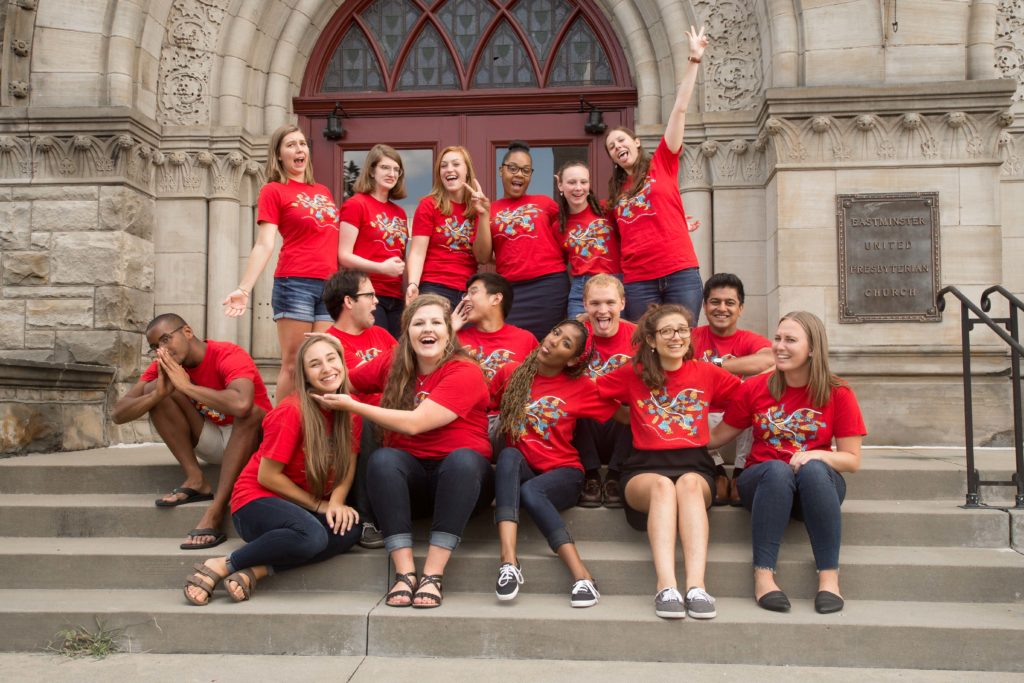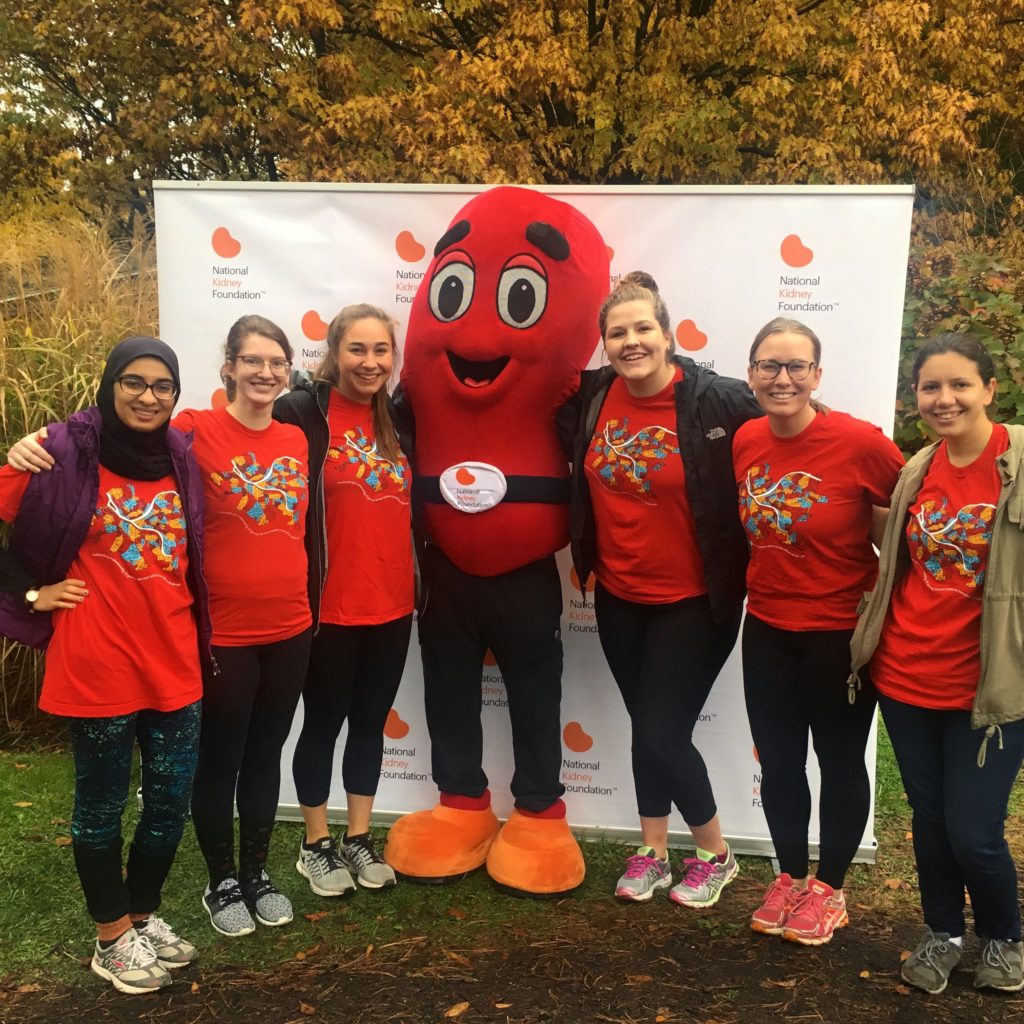By Hannah Wesselman, PULSE – Pittsburgh Urban Leadership and Service Experience
“Cura personalis.” I first heard these words my sophomore year at St. Martin’s University, during a discussion about campus life. Little did I know, this short Latin phrase meaning, “care of the whole person,” would shape my entire life path. Like many other biology majors, I was drawn to the health care field, as I dreamed of helping others fulfill their potential. Yet, the more exposure I had to the field, the more I realized how desperately our community needs to embrace the whole person, beyond the symptoms they exhibit, the money they have, or the treatment they need. I realized that when I really took “cura personalis” to heart, I was being called to care for the whole person in the context of the whole community—I needed to serve.
Fast forward to the summer following graduation, and I found myself answering this call by serving with the Pittsburgh Urban Leadership Service Experience (PULSE). This program partners recent graduates with nonprofits in the Pittsburgh area. I was matched with the Center for Research on Health Care to work with a research team focusing on reducing disparities in kidney transplants. At first I was nervous that I wouldn’t get to directly experience the injustice that is health care inequity, but right off the bat, I began to regularly meet patients at their kidney transplant evaluation appointments to provide additional educational materials and gather data through interviews. I realized that my service placement transcends the traditional crunching of numbers and writing manuscripts. When speaking with patients, they often explained their difficulty in finding social support, expressed their fears of surgery and worsening symptoms, or even recounted their daily activities. In these encounters, the patient shifted from a single name on the transplant wait-list to holistic portrait of parent, friend, employee, and community member.
In one particular instance, I met a patient and her husband at clinic to further discuss our study and provide a few resources. She seemed exhausted—the bags under her youthful eyes accompanied her story of struggle to raise her children, work part time, and make it to dialysis three times a week. Yet, despite her failing kidneys, she seemed hopeful. She had a friend that was willing to donate, and I could see the joy of hope and relief within her gaze. Luckily, she had a family who could care for her and insurance that would cover the operation and other medical expenses. That same day I met another patient who was a near perfect candidate. However, their lack of family support and insurance coverage made it unlikely that they would ever get a kidney. In this instance I felt like I was eye-to-eye with a huge problem in healthcare—both of these patients were reduced to checked or unchecked boxes. Granted, patients without sufficient social support are far less likely to have a successful transplant, so the physicians have to play the odds to avoid causing more harm than good. Yet, I couldn’t help but feel exasperated at the lack of support resources.
Shortly after meeting with these transplant candidates, I went on the hunt for ways to help. Although our research findings about the nature of the inequality in access to transplant will certainly inspire discussions about systemic change in the future, I knew I needed to bridge the gap for patients now. I began working with the National Kidney Foundation to raise support via the National Kidney Walk. I gathered a group of my ‘fellow service fellows,’ and we pulled together a team to fund-raise for research and resources dedicated to kidney disease patients. I was shocked at the turnout at the day of the walk — I witnessed physicians, families, coworkers, and patients all join together to support one another. Once again my view of the health care community expanded — I recognized hospital staff were more than providers, but also advocates for change. I felt an outpouring of empathy and learned about several new resources to provide to the patients I would see at clinic the very next day.

Hannah (first row, second from left) surrounded by her East End PULSE cohort.
When I started this journey, I assumed the solution to health care inequity would somehow come from a doctor or hospital official. However, when I began to see others as holistic human beings, I realized that health care spans far beyond the walls of any clinic. The patients I work with need more than a “new” kidney. They need support to pursue transplant and the tenacity to make it through to a healthier life. It is through genuine connection that we begin to care for each individual in mind, body, and spirit. Our community is made of many members, we are but one body, so when we care for the “whole person”, we truly care for the “whole community”.



 Thousands of faith-based service opportunities can be at your fingertips with the RESPONSE. Download the latest edition today!
Thousands of faith-based service opportunities can be at your fingertips with the RESPONSE. Download the latest edition today!
